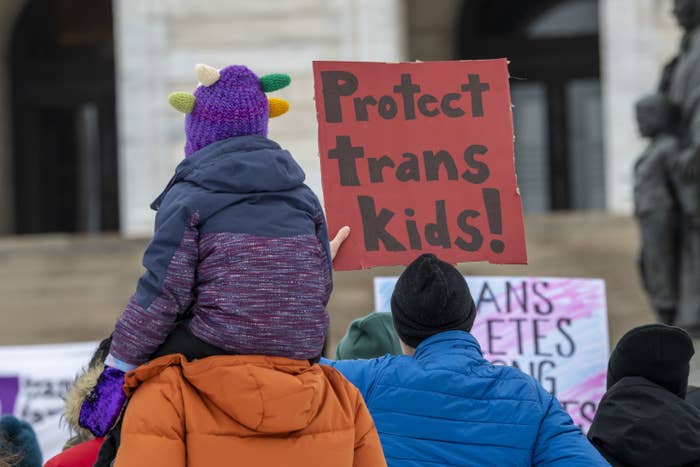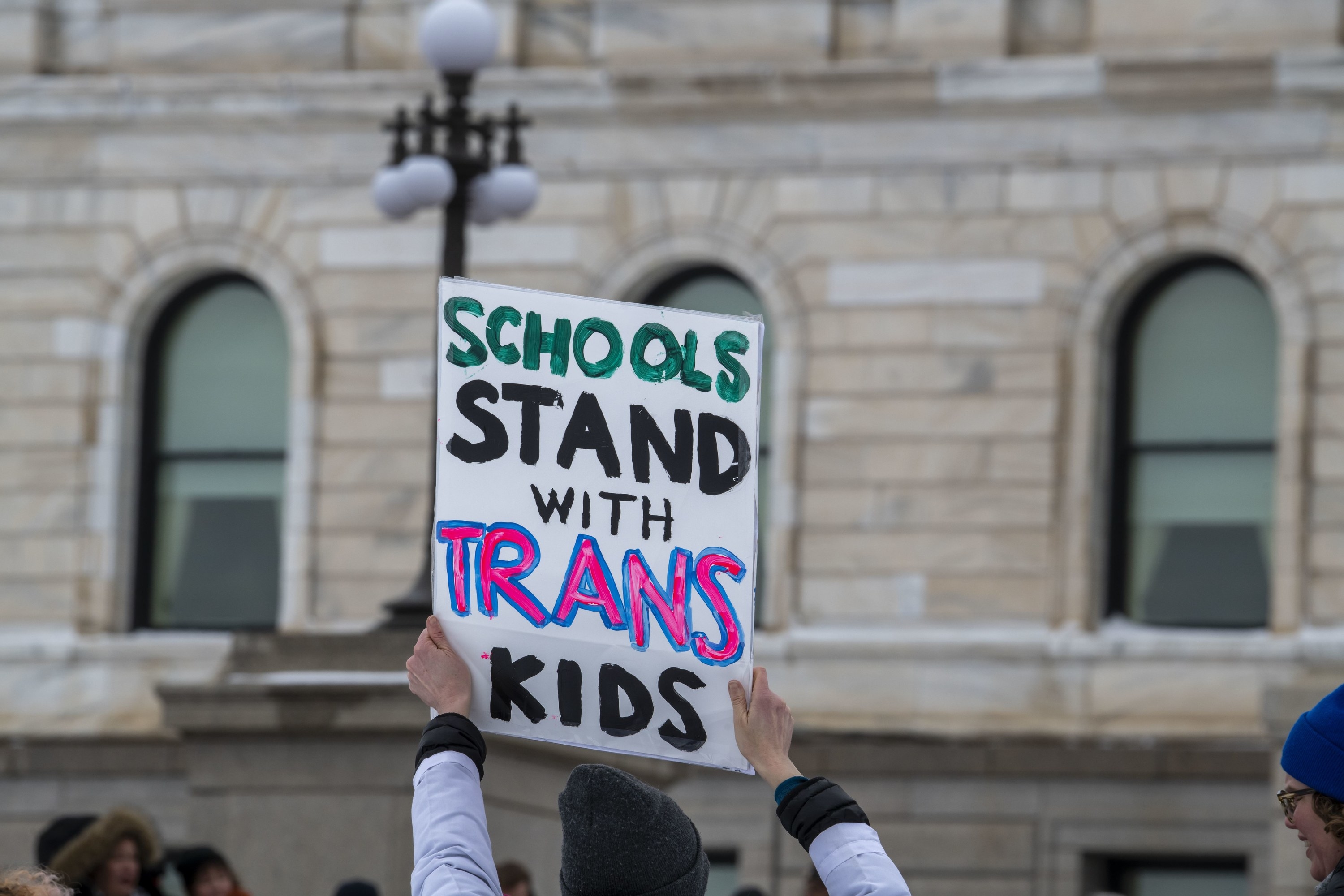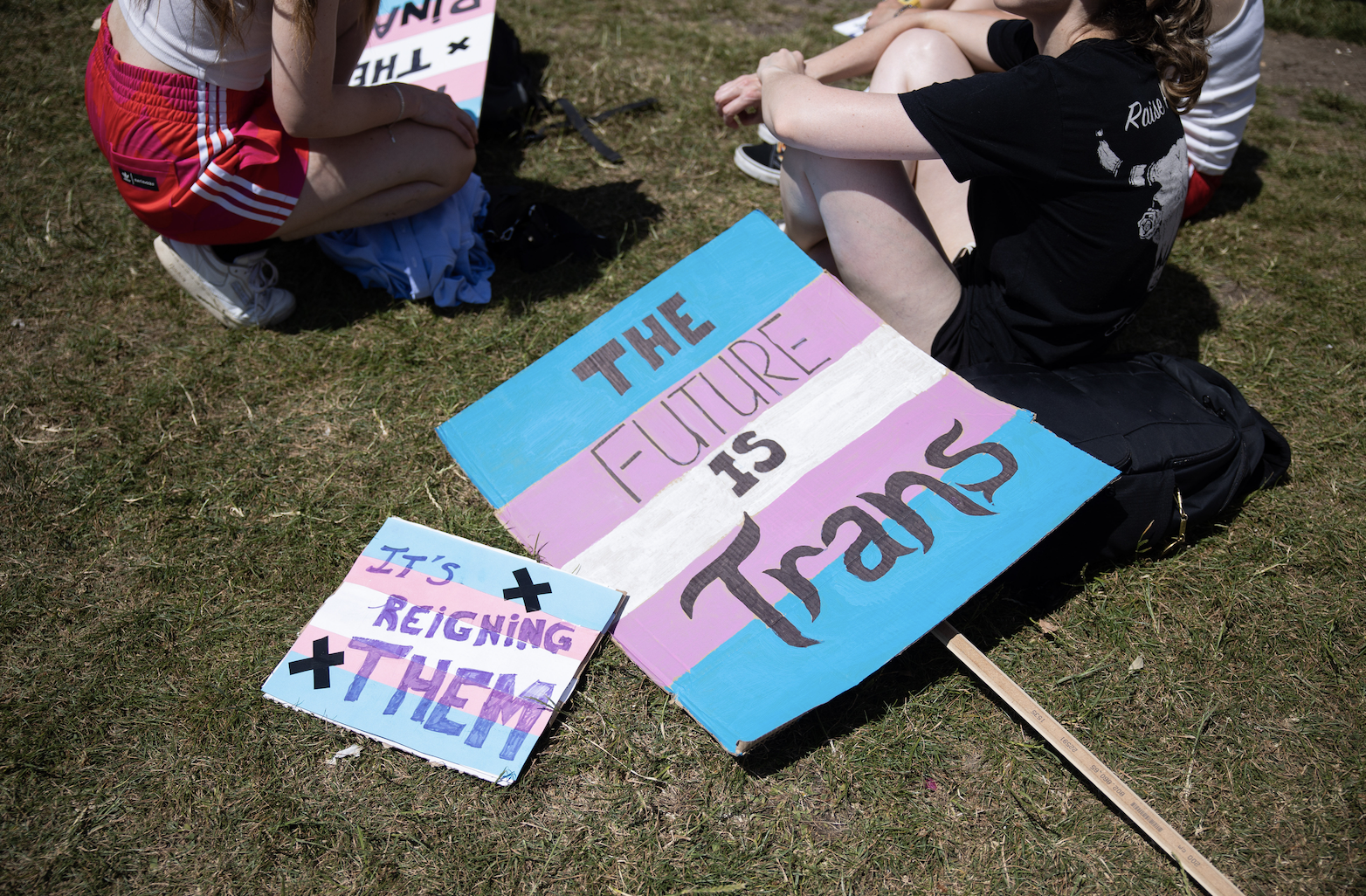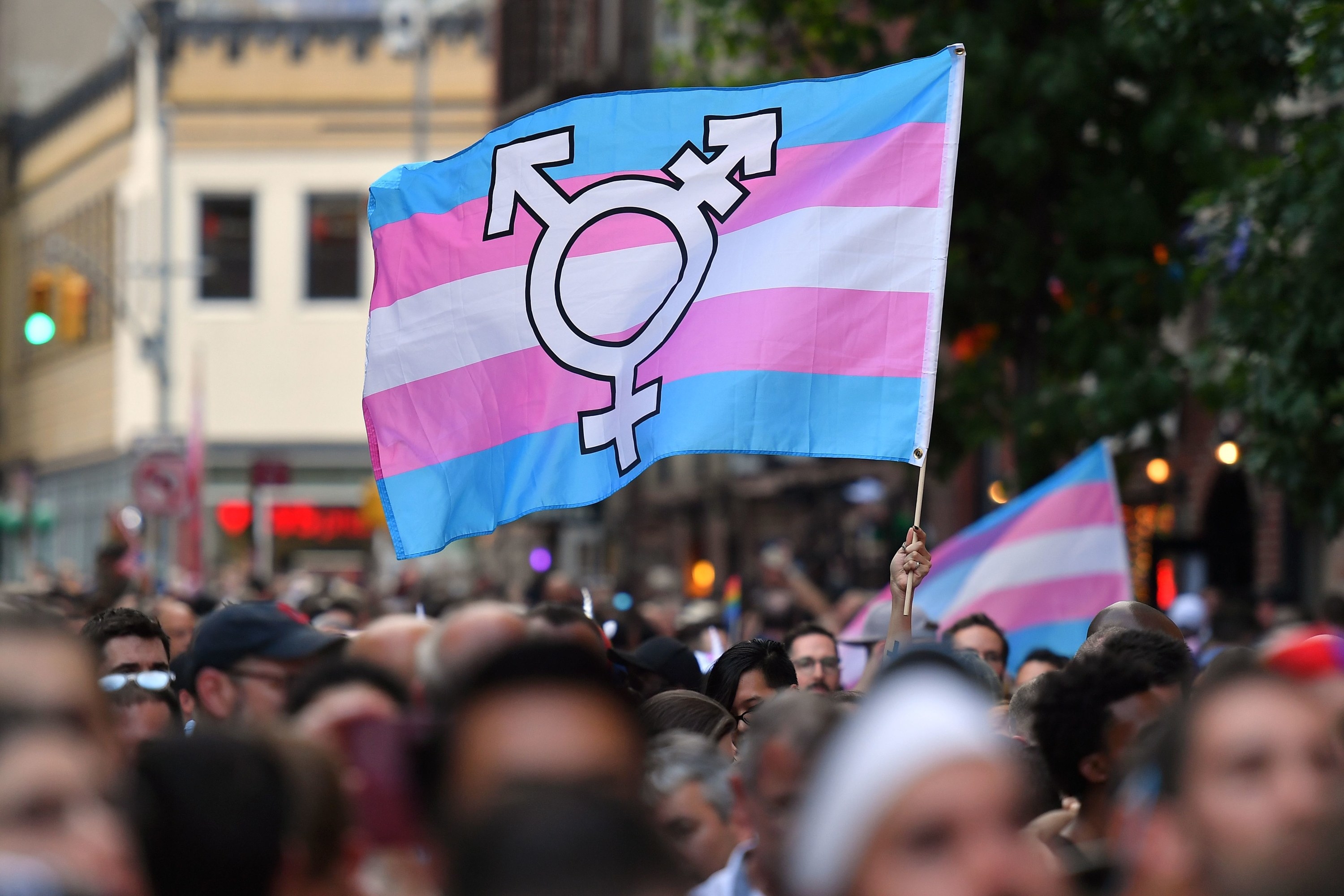It's putting it mildly to say that trans and nonbinary young people are in the center of a total moral panic right now. As family support can literally be lifesaving, we reached out to parents of trans and nonbinary youth to hear what advice they had for other parents experiencing the same thing.

Here are some of their answers:
Note: Answers have been edited for length and clarity.
1. "Talk to their teachers! I am a parent and teacher and dead names/preferred names and pronouns are not always obvious or understood. For most kids, these non-preferred names are called any time they have a substitute teacher or are paged by an administrator. Communicate with the school to ensure that your child is addressed the way they want to be."
"Let your kids read books about people like them. Most libraries have curated lists that are super user-friendly and helpful!"
—Anonymous, parent of a nonbinary 8-year-old

2. "If you’re uncomfortable or struggling with some aspect of your child’s exploration of gender — name or pronoun change, self-expression, whatever — that’s for you to address with your support, NOT YOUR CHILD. Ideally an LGBTQ+ therapist, but partners and friends who are allies can be good sounding boards, too."
"Your kid isn’t going to feel supported and accepted if you complain that you don’t like their new name or ‘just don’t understand’ nonbinary pronouns to them.
I struggled a lot with my child’s use of the word ‘deadname’ to describe the birth name we chose to honor a beloved relative who has since passed. It felt hurtful and disrespectful to their memory, but those conversations were for my therapist and a friend of mine who also has a trans child. It’s okay to have feelings about changes to your child’s identity, but it’s not your child’s job to help you work through them."
—Anonymous, parent of a nonbinary 16-year-old
3. "Commit to getting pronouns and chosen names right. It’s difficult, especially pronouns, but practice until it feels comfortable. Model their use around others, especially older family members. Kids need your help to expand the spaces where they feel accepted."
"Do whatever it takes to get your child to a place where they can feel safe."
—Anonymous, parent of an transgender 18-year-old

4. "My advice to other parents is to be open to the conversation and to give both parties time to investigate and discover their views, as these change over time on both sides."
"I'd always thought I was very progressive and open in my worldviews, but I found my second born's declaration they were a boygirl (as they described it) more confronting than I expected. I'd loved having a little version of my own gender, and didn't want to lose this.
I'm constantly amazed by the levels of self-awareness and intuition this new generation have, and when we attend drag shows or pride events together, I get so much love and support from the community for supporting my child's identity. It's a journey for both you and your child, and gives you a chance to grow with them."
—Anonymous, parent of an 11-year-old
5. "Be proud of your baby. You taught them — even unconsciously — to be their own person and follow their own dreams. That is on you, and you can be proud of that. You and your baby are courageous."
"This is your baby, the one you gave birth to and nurtured. But this baby is also a human being in their own right and will make their own choices. You have to respect that, no matter what your own ideas are.
Don't be hard on yourself if you don't get the changes right immediately. You are allowed to express to your baby that it is a change for you as well and you need to grow into it. No one's perfect."
—Anonymous, parent of a 20-year-old and 16-year-old
6. "Be supportive, patient, empathetic, nonjudgmental. Let your kids know they can come to you for anything. Mine can without facing repercussions. Your kids are trying to discover who they are and the world around them; that's tough enough as it is. Show them love does in fact exist, no matter what."
"People who hate and dislike/disagree with the LGBTQ+ community and will look at you, call you all kinds of stuff, and tell you that you are wrong for your child to be taught that way, don't let them talk down to you. Simply tell them thanks for sharing your opinion — but as a parent should, regardless of the situation, you are loving your child unconditionally, and there's nothing wrong with that. This is your choice, your child that YOU are raising, and your prerogative."
—Anonymous, parent of a 17-year-old
7. "When they come to you, the stress is unimaginable — acknowledging that they may have been dealing with that burden helps. Shelving your emotions and allowing them room was very important, in my case. I had to remind myself it's not about me. This is them sharing their self; the part that's about me is the love and support I provide."
"When their new name was chosen and told to me, I felt guilt because I was sad. The name chosen at birth was a very intimate process between their father and I. To not dead name them, I changed my most used password to a variation of their chosen one to reinforce it in me. I will forever hold their birth name with love. But I will respect and love them more always.
The goal we had from the start was to raise a child that never felt scared to talk to us. They expressed how lucky they feel to have us and know that they can tell us things they need and have a conversation without being scared. I tried to create the environment I wish I had. Even if I wasn't there every day."
—Anonymous, parent of a 19-year-old

8. "Take time to learn how being trans or nonbinary can affect a person's mental health and help your child get the help they deserve and need."
"Realize that something as simple as using the correct gender or name can be instrumental in having your child know you love them always. Talk to each other and ask your child how you can better support them, and then do what they ask you to."
—Anonymous, parent of a 14-year-old
9. "Be open and let your child take the lead. Meet them where they are at, let them know that nothing they could ever say or do would make you love them less. Ask them how they would like you to handle situations like coming out to friends and family, what to do in public restrooms, etc. Join a local Pride Group. Find any issues in your community and work to change them."
"We will be working with our local Pride group to call local businesses and donate all gender restroom signs to those willing to put them up. Be open and honest about wanting to get it right, but know you will make mistakes — and ask your child to tell you when you have made those mistakes.
My child first came out as nonbinary and then, months later, as a transgender girl. Be flexible and work your hardest to get pronouns correct and ask your child to correct you if you make a mistake and don't catch yourself. My husband and I are in awe of our brave, assertive girl who is willing to be authentic and advocate for herself."
—Anonymous, parent of a transgender 11-year-old
10. "Read as much as you can about non-gender conforming people from their own perspectives. I wish I'd had a better understanding of what it means to be trans when my child came out in his teens."
"I tried to be supportive, but I questioned a lot of his feelings because I didn't understand. What he needed most was to be heard and understood, not challenged. If we knew then what we know now, he would have started gender-affirming care much earlier, and it would have saved a lot of heartache. He receives trans care now and is so much happier.
It's so difficult to see new attacks every day on the trans community. Verbal attacks are nonstop, and these bills and laws across the country that strip their rights and freedom to live as they see fit are soul-crushing. But I want every nonbinary and trans person to know that they have allies across the nation who love and support them in spirit, at the ballot box, and every way we can."
—Anonymous, parent of a 23-year-old

11. "Making friends with people of all walks of life is important. Your kids seeing you treat people like people is important."
"Supporting those friends by attending pride with them as allies as a family did not make my son trans. It made my son trans and alive. It made him trans and still feeling loved and accepted.
Love your community in a way that your kid knows exactly where they stand and that they will never be unloved."
12. "Recognize that it will take them time to come to a full understanding of their own identity — which means the support they need from you may change over time. Let them figure things out, and make sure they know you welcome the changes as they find the name, pronouns, etc. that feel right."
"Give them flexibility to wear whatever clothes/accessories they want, even if they don’t 'match' what you think their gender expression 'should' be — there’s no reason a boy can’t wear a skirt or a girl can’t have a buzz cut, after all! Letting them know you love THEM, not the gender trappings, makes such a difference."
13. Finally, "We had real and open conversations regarding all things queer since he was born. The only thing we have ever wanted for him is to be happy. He is."
"My son came out as a trans man to my husband and me in February at 23. Not young technically, but we had been expecting him to come out as NB since he was in high school. He came out to us first. We were very proud of him (and ourselves a bit, LOL)."
Looking for more ways to get involved? Check out all of BuzzFeed's posts celebrating Pride 2023.


